The 2019 PMI Nigeria Conference took place at Muson-Center, Onikan, Lagos, Nigeria on November 7, with the theme: Beyond Project; Re-thinking The Future.
The event which is an annual conference of industry stakeholders gathers cross-industry professionals to exchange knowledge, strengthen community, network and lead the evolution of the project management profession in Nigeria.
It is the foremost platform for engaging Nigeria’s top Project Management Professionals. The conference discusses the latest trends and issues shaping the industries Project Mangers operate.
Participants at the 2019 PMI Nigeria Conference included Project Managers from the public and private sectors of Nigeria. Representatives from PMI global and PMI Africa were in attendance. As well as representatives from leading organizations including, Chevron Nigeria, Mobil Producing Nigeria, Flour Mills, Afrissance, Mixta Africa, Mott MacDonalds, MainOne, NDDC, iCentra, CPMS and most certainly ArchVision Workgroup.
The conference coincided with PMIs 50th year celebrations. It focused on rethinking the future of Project Managers as solution providers who deliver value in an age of transformation.
The central message from the 2019 PMI Nigeria conference was summed up in the optimism the speakers had for the Project Management Profession in next 50 years.
We feel it is our responsibility to embed the learnings from this conference not only in our delivering value to clients but also in the project management communities of practice in Nigeria and beyond. So, our team has summarized the key themes and main takeaways from the 2019 PMI Nigeria Conference.
Provided below is a review of these companies in no particular order:
Beyond the Physics of Project Delivery, Why Chemistry Holds the Future
Olaolu Abikoye – Project and Facilities Engineer
The movements and shifts in projects in the last 50 years were a result of chemistry. People working together to deliver projects and the purpose of those projects were also people.
Engineer Olaolu typified Chemistry as all the processes involved in the production of physics. Physics as the deliverable of the project and Chemistry as all the human factors involved.
He emphasized how chemistry holds the future of successful project management; highlighting the importance of communication skills in managing projects.
The relationships chemistry has with leadership, self-esteem and values indicate that Project Managers should not get carried away with chemistry to the detriment of their projects. Great leaders make hard decisions. Don’t give up leadership just to be in the popular books of your team.
He made a strong call for project managers in Nigeria to recognize the need for chemistry in delivering projects. As project managers, our ability to work with people is important.
In rethinking the future, we must Redesign and align to the generation that will form the majority of people actively involved in working on projects in the nearest future.
To achieve bigger things in the next 50 years, Project Managers must strive to increase their collaborative quotient. The shift from “I” to “WE” have become crucial in our world where great accomplishments depend on collaborative efforts.
Key takeaways for Nigeria’s Project Managers
- As organizations in Nigeria who develop their collaborative capacities will be more successful with large impactful projects than their counterparts.
- Project managers with collaborative capacity skills will be in higher demand in the coming years. That is, the ability to work cooperatively with others in a variety of contexts.
- To improve success, Project Managers in Nigeria will be constrained to seek emotional connections between their projects and the stakeholders involved. The high usage of social media in Nigeria today is testament to the evolving culture and future needs of stakeholder.
Harnessing Project Management Practice for Sustaining Non-Profit Organizations Beyond Project Lifecycles
Esther Hadiza Ijeaku – Project Development Management consultant
Esther Ijeaku highlighted the challenges faced within the development sector in the context of Nigeria. She was careful to point out that in the development sector the focus is people. Meeting their needs and sustaining it in the long run. A top challenge identified is the gradual reduction in project funding coupled with the significant scrutiny from more stakeholders. Additionally, most development projects are designed and delivered as stand-alone projects for the donor, not necessarily for the non-profit organization.
In Nigeria’s development sector, the overarching question will not change. “Are we getting the best value for money being invested to make the lives of Nigerians better
She made a case for the need to engage certified Project managers in Development Organizations and Non-profits to realize best-value for donor funds.
On donor expectations and guidelines, it was clear that Project Managers are best-suited to manage donor expectations and requirements. Donors require comprehensive data, reports, records, organizational process assets and transparency. These requirements are preconditions for receiving further funding or support from donors. Project Managers were identified as the best suited to enhance the ability of organizations to meet these requirements.
Donors want value for money
As donor guidelines focus on each project viewed in isolation, Non-Profits will require effective project management practices to mitigate the associated challenges. It is the Non-Profit Organizations’ responsibility to make those decisions that keep them successful. Some of these include, creating efficiencies for resource management and cross-project learning.
In rethinking the future, the sustenance of Non-Profits will depend mainly on the depth of stakeholder buy-in they secure for their donor-funded projects. Donors will increasingly require track records of the impact of previous projects and to what extent those projects are self-sustaining.
Key takeaways for Nigeria’s Project Managers
- Donors will continue to prize transparency over accomplishments. Don’t hide failed projects and issues form donors because the donors also want to learn. If there are issues the donors deserve to know.
- Nigerian Project managers should embrace a changing context and demonstrate their learning experiences. Their success and failure stories are vital for improving the successes of future development projects in our dynamic environments.
- Since people are the focus of development projects- Project managers need the degree of buy-in that sustains project impact. This underscores the need for strong approaches to stakeholder engagement.
PMI Brand Refresh: The Project Economy
Otema Yirenkyl – Vice President of Global Engagement
Otema Yirenkyl shared PMIs new exciting logo and direction at this years’ PMI Nigeria Conference. PMI’s new direction – ‘The Project Economy’ is based on the idea that projects have become the driving force behind accomplishing work in today’s organizations. Organizations now address most of the major issues they confront through projects. PMI calls this new way of working “The Project Economy.”
79 percent of executives agree that the future of work will be based on projects not roles – Accenture
Along with this new direction, PMI introduced a new logo and design language. They represent the qualities required to be a part of The Project Economy. Collaboration, Determination, Change, Innovation, Teamwork, Outcomes, Growth, Vision and Community.
Yirenkyl emphasized that as PMI begins its next 50 years, the new images and logo represents its new brand position and its intent to be the leading voice in the future. She presented the PMI list of the Top 50 Most Influential Projects of the Last 50 Years. It is noteworthy that an African project made the top 10 list.
In rethinking the future, tremendous developments are expected over the next 35 years to realize a sustainable African Built Environment. These developments will be achieved through Project Manager. Those who can ensure that capital injected is efficiently and intentionally used to achieve these projects.
She reinforced PMIs commitment to strengthen society by enabling organizations and empowering people to make ideas a reality. The core of the project management profession lies in translating ideas into reality. PMI’s focus on strengthening the leadership of the African chapters to support their growth was also emphasized.
Key takeaways for Nigeria’s Project Managers
- The need for competent, indigenous project managers to drive public sector projects will become more and more critical.
- Project managers who can navigate our dynamic environments will be increasingly required as strategic partners to a complex network of stakeholders.
- With over 1.5 million certification members across the globe and its continued commitment to set standards, strengthen and enable the project economy, PMI will remain the trusted certification authority for assessing Project Managers in Nigeria in the years ahead.
Beyond Project Delivery Way Forward for Nigeria Infrastructure Projects
Dr Goodluck Enimakpokpo – PhD, PMP
Dr Goodluck outlined why Project Managers in Nigeria should rethink the future citing the challenges with education, our refineries, population, infrastructure and electricity. He presented statistics showing the shortcomings in the trends of Nigeria’s fiscal framework for four consecutive years (2017 – 2020). Thus, demonstrating the need for Project Managers at the policy making level of Nigeria.
A key weakness identified for the failure of infrastructure development projects in Nigeria is that the project teams are not engaged in the conception and planning process of Government projects. Hence, projects fail at the planning stage, long before execution.
A poorly planned project has already failed even before it gets to execution.
Additionally, international consultants employed by government use their own templates to plan projects intended to be executed by Nigerians.
On the electricity sector, Dr Goodluck shared his 4-year Electricity Transformative Blue Print towards a total solution to the electricity problems in Nigeria. Also shared was a 4-year Emergency Gas2Power Transformation Blueprint towards leapfrogging generation capacity for a total solution in Nigeria.
Key takeaways for Nigeria’s Project Managers
- Project managers must get involved in policy making if the failure of government and infrastructure projects must be curtailed.
- To curb unemployment, fiscal indiscipline and high cost of governance, project managers must come into Federal Government Institutions like the Debt Management Office, National Budget Planning Office, National Budget Office and other policy-making organs in the Nation.
PM Stories at the 2019 PMI Nigeria Conference
Ayomide Jones: Manager, Technical Sales Project Delivery & Project Management
Jumoke Lafenwa, President, PMI Ghana Chapter
During the conference, we also heard from Ayomide Jones: Manager, Technical Sales Project Delivery & Project Management who pioneered the establishment of a PMO within MainOne.
Ayomide Jones summarized her experience establishing a PMO in MainOne. She recounted that the worst thing when creating a PMO is to think that it is a one-time endeavor. You need to constantly improve it and have policy management in place.
Considering the Nigerian project environment, she advised that becoming PMP certified helps put some structure to the madness we manage.
Jumoke Lafenwa, President, PMI Ghana Chapter, outlined the personal benefits she has enjoyed as a volunteer with PMI. She noted that volunteering with PMI makes you better and grooms you to be a better leader.
She highlighted the need to grow the brand of PMI Africa and encouraged attendees to become members of the PMI Nigeria Chapter, volunteer, attend meetings and bring ideas on board.
In all, the 2019 PMI Nigeria Conference was a good reminder of the important role Project Managers must play to improving the success-rate of projects in Nigeria and Africa.
It brought to the forefront the need for enhanced collaboration, stakeholder engagement and a renewed focus on people for whom and through whom projects exist, as we rethink the future.
Discover more about how we help our clients improve project results and get value for money. Delivered directly to your email.
At ArchVision Workgroup, we tailor our services to all clients with a deep understanding of local intricacies.
Discover more about how we help our clients improve project results and get value for money. Delivered directly to your email.
CSR: Donations to Students at Ajiran Community
Students of Hiktaos school – a community school in Ajiran area of Agungi, Lekki received donations of textbooks and school supplies for the 2018-2019 Academic session. ArchVision Workgroup Ltd in
How We Develop Project Management Systems for Organizations
As your organization grows and your internal and external project needs become more complex, you require a sustainable system that ensures your operations are effective, well-coordinated and producing maximum value.
Client Stories: How a Failing Construction Company Was Rescued
This construction company found itself on the edge of bankruptcy with no current jobs and having failed to win new bids. The company leadership turned to us to bring the
Top Indigenous Construction Companies In Nigeria
Who are Nigeria's top indigenous construction companies and what makes them different? This insight lists these companies and how they distinguish themselves by their technical expertise, project management capabilities and HSE performance.
Lovechild Education Support Initiative
ABOUT LOVECHILD EDUCATION SUPPORT INITIATIVE The Lovechild Education Support Initiative is an initiative of Lovechild Resource Solutions focused on the public primary education sector in Nigeria. This initiative is aimed to bridging the wide
CSR: LEA school Abuja teachers motivated
Presentation of gifts to school teachers in Abuja LEA Primary School Dakwo In December 2016, Lovechild Education Support Initiative donated gifts to all staffs and teachers of LEA Primary School, Dakwo Abuja. The Initiative had




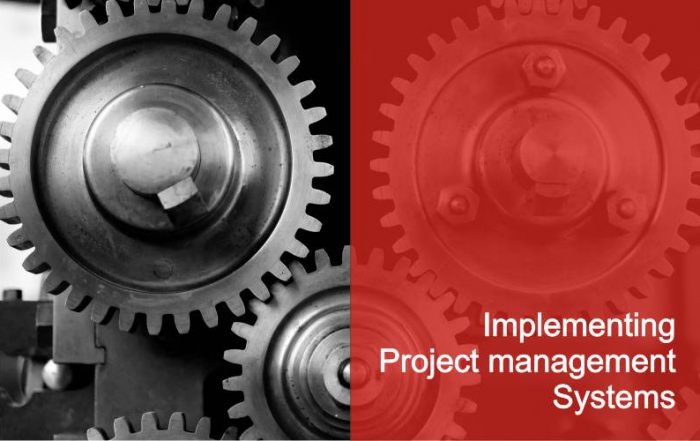
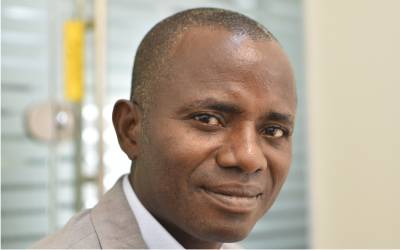


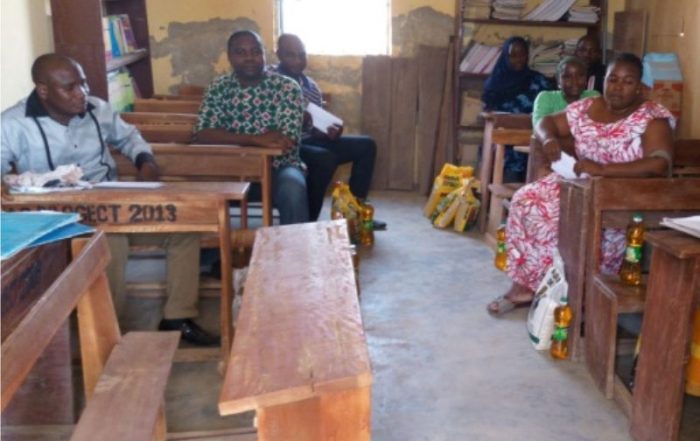
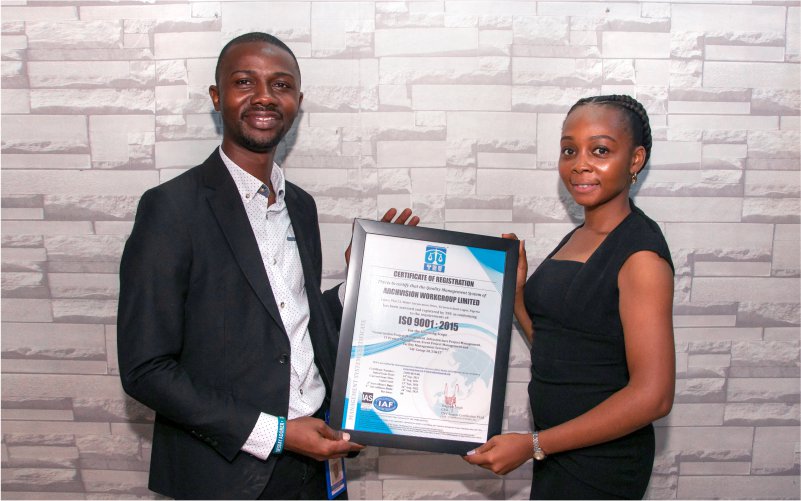
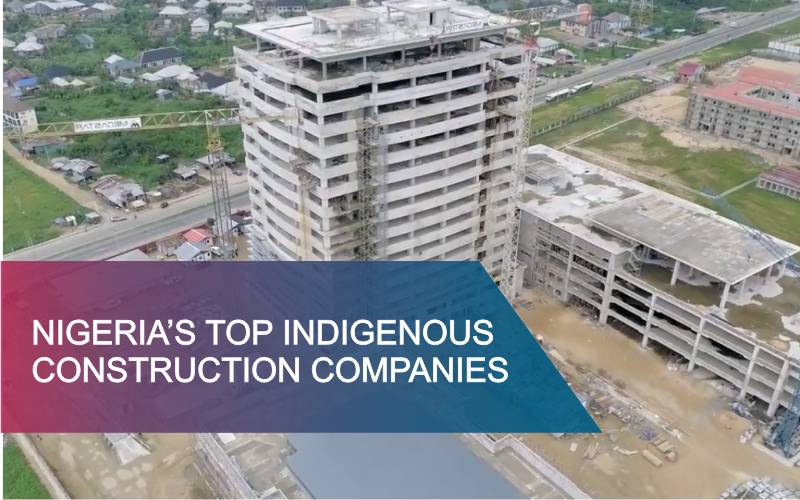
Leave A Comment